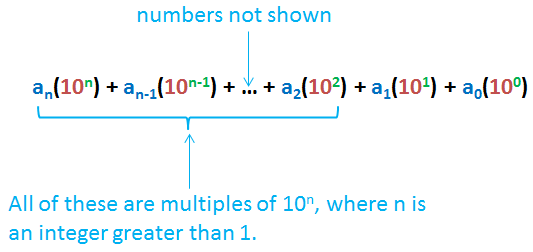Divisibility by 4
This is the second post in the Divisibility Rules Series. In the last post, we discussed about divisibility by 2. In this post, we discuss divisibility by 4.
Now, how do we know if a number is divisible by ?
Four divides because
. It is also clear that four divides
and all multiples of
. Therefore, four divides multiples of
,
, and
. In general,
divides
, where
is an integer greater than
.
Now, how do we know if a number that is not a power of is divisible by
. Let us try a few examples.
Example 1: Is divisible by
?
is equal to
and
is divisible by
. Since
is also divisible by
, therefore,
id divisible by
.
Example 2: Is divisible by
?
is equal to
. Now,
is divisible by
. Since
is not divisible by
, therefore,
is not divisible by
.
Example 3: Is divisible by
?
. Now,
is divisible by
(it’s a multiple of 100), and
is not divisible by
. Therefore,
is not divisible by
.
By now, you would have realized that we just test the last 2 digits of the numbers if we want to find out if it is divisible by 4: 148, 362, and 3426.
The Algebraic Explanation
We can always expand any number as product of integers and powers of . For example
and
maybe represented as follows:
In general, any whole number with digits
,
,
,
,
and
can be expressed as
and all numbers at the left hand side of are divisible by
since they are multiples of
where
is an integer greater than 1. Therefore, we just have to look at
, or the last two digits (the tens and the ones) of the numbers to see if it is divisible by
.
Hence, we have the following rule: A number is divisible by if the last two digits are multiples of
.

